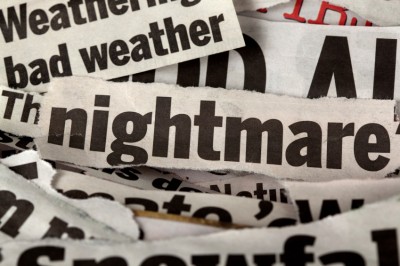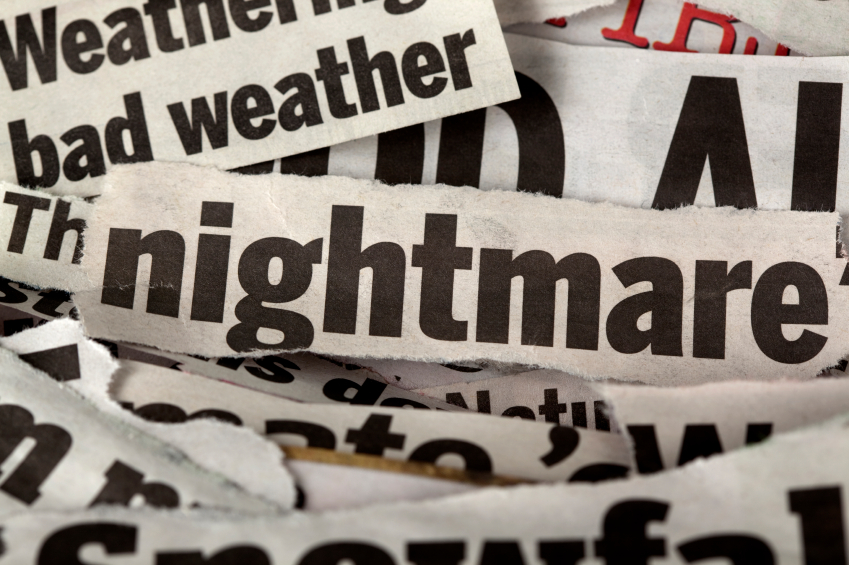 Disasters ain’t gonna do it.“Americans won’t wake up and get serious about climate change until there’s a disaster.” I’ve been hearing people say that for years, but more and more lately. There’s always an uptick after a political defeat like the failure of the climate bill.
Disasters ain’t gonna do it.“Americans won’t wake up and get serious about climate change until there’s a disaster.” I’ve been hearing people say that for years, but more and more lately. There’s always an uptick after a political defeat like the failure of the climate bill.
It’s delivered with “more in sadness than in anger” earnestness, and of course no one will ever say they want a disaster to happen, but it’s hard not to detect, beneath the surface, some small bit of relish at the thought of saying “I told you so.” In more heated circles, there’s even a touch of Old Testament justice in the mix, as though Americans are getting what they deserve for their sinful ways and need to learn a lesson.
I think that’s a dangerous temptation that should be strenuously avoided. First and foremost, disasters suck: They impose a great deal of suffering on innocent people. It is never a good thing when that happens. But even if the moral reason is set aside, there are still two practical reasons to doubt that disasters will prompt the kind of change climate hawks would want.
First, the U.S. has an almost $15 trillion economy. No sudden disaster this side of a massive nuclear attack could produce enough economic damage to substantially change the inertia of an economy that size. We’ve had disasters, including Hurricane Katrina and the Gulf BP oil spill, and while they’ve been tragic on their own terms, there wasn’t enough cost to the national economy to force policymakers to large-scale or long-term action. Disasters do not tend to Change Everything. Hell, even the ongoing Great Recession produced only modest reforms, and its economic impact dwarfed that of any single natural disaster.
Some disasters have enormous second-order effects, by galvanizing the public and policymakers with such trauma that it leaves an enormous wake of social and political changes. Those disasters generally have something in common: They are caused by outsiders with human faces, like 9/11. It is in part the anger and thirst for revenge that give that kind of disaster its power to reshape the country. Natural disasters are seen as sad but not as creating an obligation for broad national action. Even “accidents” like the Gulf oil spill and the economic crash don’t leave much behind these days (except tarballs).
The second reason is, even if there were one truly huge weather disaster, or a series of mid-level disasters in close succession, or something of similarly catastrophic impact, there’s no guarantee that our collective response would be benign, or move us closer to smart policy. People don’t tend to respond to trauma with good will and foresight. They respond with their amygdala: their fight-or-flight, us-or-them, zero-sum reptile brain. They become more susceptible to demagoguery, nationalism, and xenophobia, not less. I’m not sure a battered and fearful American public is one we can expect to embrace progressive change.
Anyway. I’m not trying to accuse anyone of wanting a disaster, of course. I just think we should extremely suspicious of the wistful hope that a disaster could do our social and political work for us. It’s just as likely that the expected increase in severe weather events could, like so many other trends, make climate change more difficult to solve over time.


